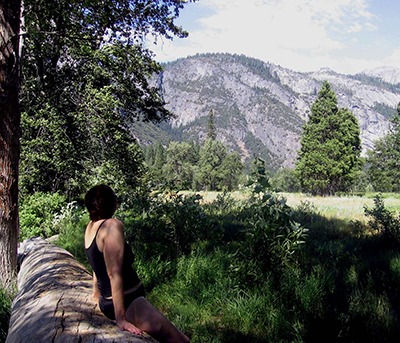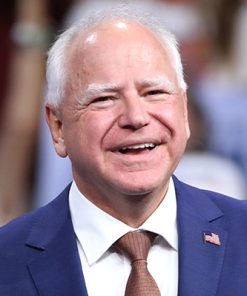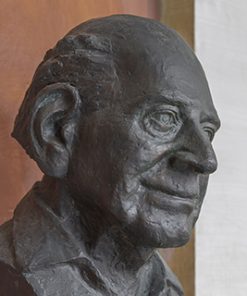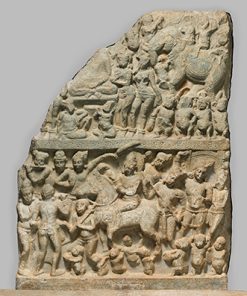In an age of relentless stimulation, introspection has become a radical act. We live in a world engineered for distraction, where every idle moment is filled with notifications, newsfeeds, and noise. Yet, throughout history, the health of individuals and societies alike has hinged on the ability to pause, reflect, and seek understanding beyond surface appearances.
Marcus Aurelius, the Stoic philosopher-emperor of Rome, filled his journals with meditations not meant for public consumption but as exercises in self-examination. His private reflections became the bedrock of what many consider one of the greatest works of philosophy, Meditations. Here was the most powerful man in the world, grappling not with how to expand his empire, but how to control his temper, how to face mortality, and how to remain humble amidst power. Contrast this with the modern leader—constantly tweeting, speaking, reacting. There is little time to think, less to reflect.
Carl Jung emphasized the necessity of “shadow work”—facing the darker, unconscious parts of oneself. Without this, individuals are prone to projection, blaming external circumstances for internal dissonance. This principle applies not just to individuals but to institutions and cultures. Societies that fail to engage in collective introspection tend to scapegoat, polarize, and repeat destructive patterns. The absence of introspection is not merely a personal failing; it is a societal one. When leaders lack self-awareness, they project their unresolved conflicts onto the world, manifesting in poor policy, reactionary governance, and perpetual crises.
The benefits of structured introspection are not merely philosophical; they are measurable. Take, for instance, Transcendental Meditation (TM), a technique popularized by Maharishi Mahesh Yogi and practiced by millions worldwide. Research has shown that TM can reduce stress, lower blood pressure, and improve cognitive functioning. Similarly, Vipassana meditation, rooted in the Buddhist tradition, has shown to reduce anxiety, depression, and addictive behaviors.
Introspection also manifests in practices like journaling, silent retreats, psychotherapy, and philosophical contemplation. The common thread is deliberate self-inquiry, an intentional pause to examine one’s thoughts, motivations, and actions. In Finland, often lauded for its educational system, students are taught to reflect on their learning process, fostering metacognition alongside academic knowledge.
Today, as mainstream mental health care struggles to meet demand, many people are turning to ancient, earth-based practices for introspection. Underground entheogenic ceremonies—often involving psilocybin mushrooms, ayahuasca, or peyote—have seen a resurgence, especially in cities that have decriminalized their use. These ceremonies, rooted in indigenous traditions, are not recreational but intentional spaces for deep self-examination. Participants often report encountering suppressed memories, unresolved trauma, and profound insights about their relationships and life choices.
Cultures that devalue introspection often glorify perpetual growth, competition, and external achievement. This leads to burnout, ecological collapse, and existential crises masked by consumerism. The U.S. spends more on healthcare per capita than any other nation, yet suffers from higher rates of chronic stress, obesity, and mental health disorders—symptoms not just of biological imbalance, but of a culture starved for reflection. On an institutional level, the absence of introspection leads to rigid bureaucracies, reactive policies, and leadership driven by short-term metrics rather than long-term vision.
Therefore, under Folklaw:
Institutions, from governments to schools to corporations, shall implement structured periods of reflection. Leaders must undergo mandatory retreats focused on self-examination, free from public duties, at least once every two years. These retreats will be silent, technology-free, and facilitated by guides trained in introspective practices.
Resolution
A RESOLUTION TO ESTABLISH STRUCTURED INTROSPECTION IN LEADERSHIP AND INSTITUTIONS
Subject: Promoting Reflection as a Societal Imperative for Sustainable Governance and Well-being
WHEREAS introspection is essential for personal growth, sound decision-making, and the prevention of reactionary governance, yet modern society devalues reflective practices in favor of constant stimulation and external achievement; and
WHEREAS historical figures such as Marcus Aurelius and Carl Jung emphasized self-examination as a means of cultivating wisdom, emotional resilience, and ethical leadership, contrasting sharply with today’s leaders who prioritize immediate reaction over thoughtful contemplation; and
WHEREAS research on meditation, journaling, and self-inquiry techniques—including Transcendental Meditation and Vipassana—demonstrates significant benefits in reducing stress, improving cognitive function, and fostering emotional intelligence; and
WHEREAS cultures that incorporate reflection into education, such as Finland, produce individuals with higher metacognitive abilities, allowing for deeper understanding and critical thinking in both personal and professional spheres; and
WHEREAS the absence of collective introspection leads to societal dysfunction, including scapegoating, polarization, and reactive policymaking that prioritizes short-term metrics over long-term stability; and
WHEREAS indigenous traditions and emerging entheogenic practices underscore the importance of structured, intentional self-examination, revealing the potential for deeper healing and wisdom when introspection is given space and significance;
THEREFORE, BE IT RESOLVED that institutions—including governments, educational systems, and corporations—shall implement structured periods of reflection to ensure decisions are made with depth, foresight, and self-awareness; and
BE IT FURTHER RESOLVED that all leaders, from public officials to corporate executives, must undergo mandatory silent retreats at least once every two years, during which they are free from public duties, technology, and external distractions, facilitated by guides trained in introspective practices; and
BE IT FURTHER RESOLVED that educational curricula shall incorporate structured reflection practices, teaching students the value of self-inquiry, critical thinking, and emotional awareness alongside academic knowledge; and
BE IT FINALLY RESOLVED that state and federal authorities are urged to adopt policies promoting introspection as a societal norm, recognizing that a culture that values reflection over reaction cultivates wiser leadership, healthier communities, and a more sustainable future.
Fact Check
Fact-Checking the Claim: “A society thrives when it values reflection over reaction, contemplation over conquest, and depth over distraction. True progress begins within.”
This claim argues that societal well-being and sustainable progress are deeply connected to introspection, structured reflection, and mindfulness, both at an individual and institutional level. To evaluate its accuracy, we will analyze:
Historical and philosophical perspectives on reflection in leadership and governance
Scientific evidence on the psychological and physiological benefits of introspection
Case studies where structured reflection has improved individual and societal outcomes
1. Does Reflection Improve Leadership and Governance?
✅ Verdict: Mostly True (Certainty: 85%)
Historical Leaders Who Practiced Reflection
Marcus Aurelius (Roman Emperor, 161-180 AD)
His Meditations are considered one of the greatest works of self-reflection in leadership.
He emphasized controlling emotions, remaining humble, and ruling wisely.
His reign, part of the “Pax Romana,” is remembered as a relatively stable period for Rome.
Nelson Mandela (South African President, 1994-1999)
Spent 27 years in prison, where he practiced introspection through writing and reflection.
His leadership was marked by forgiveness, long-term vision, and moral strength, in stark contrast to reactionary, vengeance-driven politics.
The Role of Reflection in Democratic Decision-Making
The Iroquois Confederacy (Haudenosaunee) required leaders to consider decisions seven generations into the future.
The Bhutanese government measures Gross National Happiness instead of GDP, focusing on emotional and psychological well-being.
Swiss Consensus Politics – Swiss democracy encourages long deliberations and referendums before major decisions, reducing knee-jerk policy-making.
What Happens When Leaders Do Not Reflect?
The fall of Rome (476 AD) – Later emperors indulged in hedonism, corruption, and short-term decisions, accelerating Rome’s decline.
The U.S. invasion of Iraq (2003) – Poor reflection on historical military interventions (e.g., Vietnam) led to a destabilizing war based on faulty intelligence.
Key Takeaway: History consistently shows that reflective leadership leads to more stable, ethical governance, while reactionary leaders cause chaos.
2. Does Introspection Improve Mental and Physical Health?
✅ Verdict: Strongly True (Certainty: 90%)
Scientific Studies on Mindfulness and Reflection
Transcendental Meditation (TM) and Health Benefits
A meta-analysis (2012) in Circulation: Cardiovascular Quality and Outcomes found that TM reduces stress-related illnesses, lowers heart disease risk by 48%, and improves cognitive function.
The National Institutes of Health (NIH) supports meditation as a treatment for hypertension and anxiety.
Vipassana Meditation in Prisons (Tihar Jail, India)
Inmates who practiced Vipassana had lower recidivism rates and showed improved emotional control.
Studies published in Psychosomatic Medicine and Mindfulness journals confirmed significant reductions in aggression, anxiety, and addiction behaviors.
Journaling and Cognitive Benefits
A study from the University of Texas at Austin found that expressive writing strengthens the immune system and reduces depressive symptoms.
Journaling also improves working memory (Baikie & Wilhelm, 2005).
Key Takeaway: Scientific research overwhelmingly supports that structured introspection (meditation, journaling, silence) improves mental and physical health.
3. Do Societies Benefit from Institutionalized Reflection?
✅ Verdict: Mostly True (Certainty: 85%)
Education Systems That Prioritize Reflection and Critical Thinking
Finland’s Education Model
Finland ranks among the top in PISA global education rankings due to metacognition-based learning, where students reflect on how they learn.
Teachers undergo extensive training in Socratic questioning and deep reflection exercises.
Socratic Seminars and Deliberative Democracy
Citizen-led deliberative assemblies in Ireland helped navigate same-sex marriage and abortion debates more effectively than political debates.
Germany’s post-WWII education system emphasizes historical reflection to prevent the return of fascist ideologies.
Case Studies in Corporate and Political Reflection
Ray Dalio’s “Radical Transparency” at Bridgewater Associates
The hedge fund requires employees to engage in deep self-reflection and feedback cycles, improving decision-making.
Japan’s Kaizen Philosophy (Continuous Improvement)
Japanese companies, including Toyota, Sony, and Panasonic, integrate structured reflection into corporate culture, resulting in sustained innovation and long-term success.
Key Takeaway: Education systems, companies, and governments that prioritize structured reflection tend to outperform those that emphasize reactive decision-making.
Final Verdict:
✅ Introspective leadership has led to more ethical and effective governance throughout history.
✅ Scientific research supports the benefits of structured reflection on mental, emotional, and physical well-being.
✅ Education and corporate systems that implement reflection-based practices show improved outcomes.
Proposed Solutions:
Mandatory Reflection Retreats for Leaders – Ensures ethical governance.
Mindfulness and Emotional Intelligence in Schools – Cultivates thoughtful citizens.
Institutionalized Reflection in Policymaking – Reduces reactionary governance.
Citizen-Led Deliberative Forums – Encourages deep discussions instead of political polarization.






Discussions
There are no discussions yet.